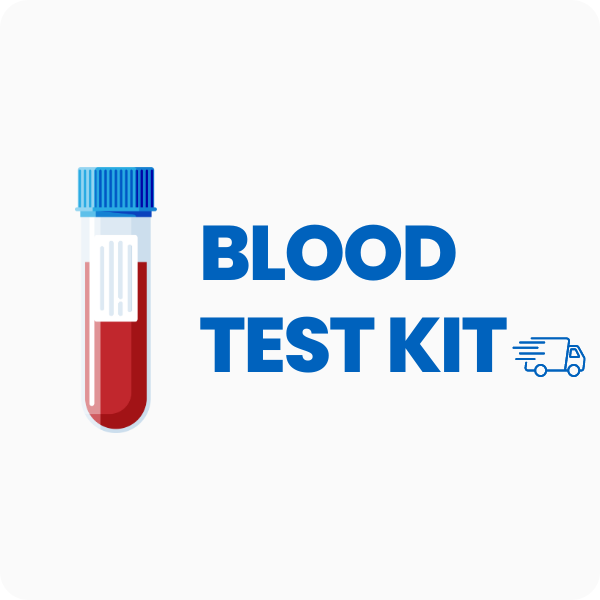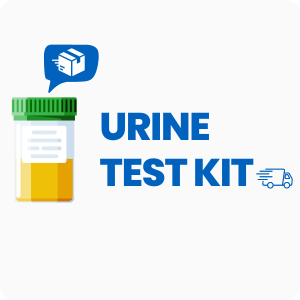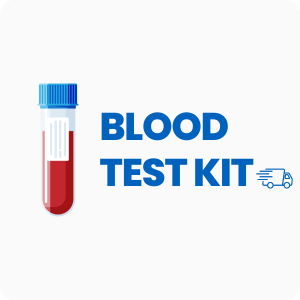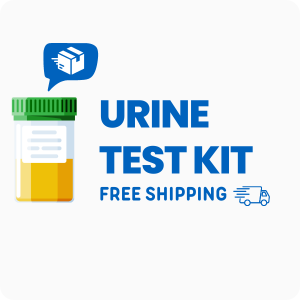Ordering the Micronutrient Test by Vibrant America | Canada
The Micronutrient Test by Vibrant America helps identify specific vitamin and mineral imbalances that may affect energy, metabolism, and immune response. This test measures both extracellular and intracellular levels, giving a detailed view of nutrient status that can guide dietary changes or supplementation. Interestingly, this test can reveal hidden deficiencies even when standard blood tests appear normal, as it evaluates how nutrients function inside your cells.
Ordering this test provides several specific benefits:
- Detects both short-term and long-term nutrient imbalances for a more complete nutritional profile.
- Supports targeted dietary and supplement recommendations based on your unique results.
- Helps monitor the effectiveness of current nutrition or supplement plans.
- Assists in identifying possible causes of symptoms like fatigue, poor concentration, or muscle cramps.
- Offers insight into how well your body absorbs and uses key nutrients.
Who Should Consider Comprehensive Nutrient Testing
People who experience ongoing tiredness, frequent colds, or trouble focusing may benefit from this test. For example, someone who eats a balanced diet but still feels run down and has trouble recovering from exercise could use this test to check for hidden nutrient gaps.
Ordering this test may also be helpful in these situations:
- Persistent muscle cramps or joint pain despite regular stretching and hydration.
- Unexplained hair loss or brittle nails that do not improve with standard care.
- Difficulty managing weight even with regular exercise and healthy eating.
- Digestive issues that may affect nutrient absorption, such as bloating or irregular bowel movements.
- People who follow a plant-based diet and want to check for less obvious deficiencies, such as vitamin B12 or zinc.
Testing for nutrient levels can help pinpoint the cause of symptoms like low energy, slow recovery, or frequent infections, allowing for more precise changes to diet or supplements. Delaying this test may mean missing the chance to address nutrient gaps before they start to affect things like energy, focus, or immune response.
Preparing for Your Nutrient Assessment
Fasting is not required for this test, but it is best to avoid taking supplements for at least one week before your sample collection. Always follow any instructions or recommendations provided by your doctor or healthcare professional to make sure your results reflect your true nutritional status.
Labs Included When Ordering Your Micronutrient Test by Vibrant America
| Test Name | Reference Range | Significance | Low and High Levels of Micronutrient Test by Vibrant America |
|---|---|---|---|
| Vitamins | |||
| Vitamin A | 20-80 | Vitamin A supports vision, immune response, and skin repair. It is stored in the liver and released as needed for body functions. |
High levels mean possible liver issues or excess supplement use.
Low levels mean risk for night blindness, dry skin, and poor immune response. |
| Vitamin B1 (Thiamine) | 66-200 | Thiamine helps turn food into energy and supports nerve and muscle function. |
High levels mean excess supplementation.
Low levels mean risk for nerve pain, weakness, and memory problems. |
| Vitamin B2 (Riboflavin) | 5-50 | Riboflavin is needed for energy production and helps keep skin, eyes, and nerves healthy. |
High levels mean excess intake, usually not harmful.
Low levels mean risk for mouth sores, sore throat, and skin changes. |
| Vitamin B3 (Niacin) | 0.5-8 | Niacin helps convert food into energy and supports skin, nerves, and digestion. |
High levels mean possible liver stress or flushing.
Low levels mean risk for skin rashes, diarrhea, and confusion. |
| Vitamin B5 (Pantothenic Acid) | 1-10 | Pantothenic acid is needed for making hormones and breaking down fats and carbohydrates for energy. |
High levels mean excess supplementation.
Low levels mean risk for fatigue, numbness, and muscle cramps. |
| Vitamin B6 | 5-50 | Vitamin B6 helps with brain development and keeps nerves and immune function working well. |
High levels mean possible nerve damage with long-term excess.
Low levels mean risk for confusion, depression, and weakened immune response. |
| Vitamin B12 | 200-900 | Vitamin B12 is needed for making red blood cells and keeping nerves healthy. It is often low in people who avoid animal foods. |
High levels mean excess supplementation or liver issues.
Low levels mean risk for anemia, numbness, and memory loss. |
| Vitamin C | 0.4-2 | Vitamin C helps with wound healing, iron absorption, and immune support. It is also an antioxidant. |
High levels mean excess intake, usually not harmful.
Low levels mean risk for bleeding gums, slow healing, and frequent infections. |
| Vitamin D3 | 30-100 | Vitamin D3 helps the body absorb calcium and supports bone strength and immune response. |
High levels mean risk for high calcium and kidney problems.
Low levels mean risk for weak bones, muscle pain, and frequent infections. |
| Vitamin D, 25-OH | 30-100 | This form of vitamin D shows the body’s storage level and is used to check for deficiency or excess. |
High levels mean risk for high calcium and kidney stones.
Low levels mean risk for bone loss, muscle weakness, and low mood. |
| Vitamin E | 5-20 | Vitamin E is an antioxidant that protects cells from damage and supports immune function. |
High levels mean risk for bleeding problems.
Low levels mean risk for nerve and muscle damage. |
| Vitamin K1 | 0.2-3.2 | Vitamin K1 is needed for blood clotting and bone strength. |
High levels mean excess supplementation.
Low levels mean risk for easy bruising and bleeding. |
| Vitamin K2 | 0.2-3.2 | Vitamin K2 helps move calcium into bones and teeth and away from arteries. |
High levels mean excess supplementation.
Low levels mean risk for weak bones and artery calcification. |
| Minerals | |||
| Sodium | 135-145 | Sodium helps control fluid balance, nerve signals, and muscle function. |
High levels mean dehydration or kidney issues.
Low levels mean risk for confusion, headache, and muscle cramps. |
| Potassium | 3.5-5.1 | Potassium is needed for heart rhythm, muscle contraction, and nerve signals. |
High levels mean risk for irregular heartbeat.
Low levels mean risk for muscle weakness and heart rhythm changes. |
| Calcium | 8.6-10.2 | Calcium is needed for strong bones, teeth, muscle movement, and nerve function. |
High levels mean risk for kidney stones and weak muscles.
Low levels mean risk for muscle cramps and weak bones. |
| Manganese | 0.5-2.5 | Manganese helps with bone formation, wound healing, and metabolism of amino acids and cholesterol. |
High levels mean risk for nerve symptoms.
Low levels mean risk for poor bone growth and slow healing. |
| Magnesium | 1.7-2.2 | Magnesium supports muscle and nerve function, blood sugar control, and bone strength. |
High levels mean risk for low blood pressure and slow reflexes.
Low levels mean risk for muscle cramps, tremors, and irregular heartbeat. |
| Zinc | 70-120 | Zinc is needed for immune response, wound healing, and DNA production. |
High levels mean risk for nausea and immune changes.
Low levels mean risk for slow healing, hair loss, and frequent infections. |
| Copper | 70-140 | Copper helps with iron absorption, nerve function, and making red blood cells. |
High levels mean risk for stomach pain and liver issues.
Low levels mean risk for anemia and weak immune response. |
| Chromium | 0.1-0.5 | Chromium helps the body use insulin and manage blood sugar. |
High levels mean possible kidney issues.
Low levels mean risk for poor blood sugar control. |
| Iron | 50-170 | Iron is needed for making red blood cells and carrying oxygen in the blood. |
High levels mean risk for organ damage.
Low levels mean risk for tiredness and anemia. |
| Other Nutrients | |||
| CoQ10 | 0.5-1.8 | CoQ10 helps cells make energy and acts as an antioxidant, protecting cells from damage. |
High levels mean excess supplementation.
Low levels mean risk for muscle weakness and fatigue. |
| Cysteine | 200-300 | Cysteine is an amino acid important for making proteins and antioxidants in the body. |
High levels mean possible metabolic issues.
Low levels mean risk for weak hair, skin, and nails. |
| Selenium | 70-150 | Selenium is an antioxidant that helps protect cells and supports thyroid function. |
High levels mean risk for hair loss and stomach upset.
Low levels mean risk for weak immune response and thyroid problems. |
| Glutathione | 5-15 | Glutathione is a strong antioxidant that helps detoxify the body and protect cells from damage. |
High levels mean excess supplementation.
Low levels mean risk for oxidative stress and slow recovery. |
| Asparagine | 30-80 | Asparagine is an amino acid needed for making proteins and supporting brain function. |
High levels mean possible kidney issues.
Low levels mean risk for poor muscle growth and fatigue. |
| Glutamine | 400-700 | Glutamine is an amino acid that helps with muscle repair and supports gut health. |
High levels mean possible kidney or liver issues.
Low levels mean risk for muscle loss and slow recovery. |
| Serine | 80-180 | Serine is an amino acid needed for making proteins and supporting brain and nerve function. |
High levels mean possible metabolic issues.
Low levels mean risk for poor memory and slow growth. |
| Citrulline | 20-40 | Citrulline is an amino acid that helps with blood flow and removing waste from the body. |
High levels mean possible liver or kidney issues.
Low levels mean risk for poor blood flow and slow recovery. |
| Arginine | 40-120 | Arginine is an amino acid that helps with blood flow, healing, and immune response. |
High levels mean possible metabolic issues.
Low levels mean risk for slow healing and weak immune response. |
| Choline | 7-20 | Choline is needed for brain development, memory, and muscle movement. |
High levels mean possible liver issues.
Low levels mean risk for memory problems and muscle weakness. |
| Inositol | 20-80 | Inositol helps with nerve signals and supports mood balance. |
High levels mean possible kidney issues.
Low levels mean risk for mood swings and nerve problems. |
| Carnitine | 20-60 | Carnitine helps the body turn fat into energy and supports heart and muscle function. |
High levels mean excess supplementation.
Low levels mean risk for muscle weakness and tiredness. |
| MMA (Methylmalonic Acid) | 0.08-0.56 | MMA is used to check for vitamin B12 deficiency, as high levels mean the body is not using B12 well. |
High levels mean possible B12 deficiency.
Low levels mean B12 is being used well by the body. |
Reference ranges may change slightly as labs update their methods or as new research becomes available.
Micronutrient Test by Vibrant America FAQ
Is there Micronutrient Test by Vibrant America testing near me?
This is a test kit that you can collect locally, and you can check the draw location link at the top of the page for nearby options. For people with ongoing tiredness or trouble with nutrient absorption, having a convenient collection site makes it easier to get tested without extra travel or delays.
How do I interpret the test results?
While your treating physician should review your results, you can also use our one-on-one test results review service with our clinical team for a detailed explanation and next steps.
What is the cost of the test?
The price shown includes standard shipping to you and return shipping to the lab, but draw fees may apply at some locations. Ordering this test can help you find and address nutrient gaps that may be slowing your recovery from fatigue or other symptoms.
How often should I retest?
Retesting every 6 to 12 months is recommended, especially if you are making changes to your diet or supplements, so you can track improvements and adjust your plan as needed.
How accurate is the test?
This test uses advanced mass spectrometry and immunoassay methods to measure both extracellular and intracellular nutrient levels, with a specificity of 98% and sensitivity of 97%. TrueHealthLabs.com partners with CLIA-certified and CAP-certified laboratories to uphold rigorous testing standards for dependable results.
Medical Review Board
Reviewed by Jeff Donohue M.D. from Body Logic and Brady Hurst DC, CCCN. Written by True Health Lab’s team of editorial health contributors.
Disclaimer: This information is for educational purposes only and not intended as medical advice. Consult your healthcare provider for personalized guidance.
Why Customers Trust True Health Labs – What People are saying
Also rated 4.6 out of 5 based on 3452 ShopperApproved reviews- See all TrueHealthLabs.com reviews.










